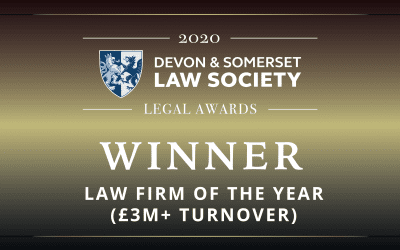Trusts
A trust is a legal arrangement whereby assets are transferred to trustees (legal owners) to maintain for the benefit of a person, or group of people known as the beneficiaries (beneficial owners). A trust can be set up either during your life or by will.
The two main types of trust are:
- Life interest trust – allows for the income or benefit to be given to a specific beneficiary during their life and then on their death the capital is distributed amongst the remainder beneficiaries.
- Discretionary trust – the income and capital of the trust is distributed at the trustees’ discretion to any of the named beneficiaries.
The benefits of a trust:
Protection of beneficiaries
Trusts can offer a means of holding assets for those individuals who are unable to manage their own affairs i.e. younger children, vulnerable or disabled beneficiaries.
Protection of assets
If you have concerns about passing assets directly to family members, a trust can be useful to ensure these assets are retained for as long as possible.
Keeping control
The trust document allows you to set out how the trust assets are to be dealt withand who should benefit. As a trustee you can also be involved in the day to day management of the trust.
Providing for beneficiaries in different ways
To provide for a spouse in a second marriage or partner, during their lifetime, and at the same time to protect the capital interests for children from any previous marriage.
How we can help:
The creation and administration of trusts and settlements together with general advice on inheritance tax mitigation are core parts of the activities of this department and we can advise on all aspects of these complex subjects. We can advise on inheritance tax planning directly or as part of our service when making wills or setting up trusts/settlements.
In 2017 we received the Law Society’s prestigious Excellence in Private Client Practice award for our work in this area of law.
We can provide different pricing options depending on your budget and we are happy to have an initial chat without obligation – contact us today.
Trust Registration service – Register your Trust by the 1st September 2022 – read our guide here.
Contact Us
North, South, East or West. Wherever you are, we’ve got you covered. Contact us today for an informal chat, without obligation. We look forward to hearing from you.
Wills, probate & private client news
Vulnerable face timebomb by not appointing others to act
Professionals working with the elderly and vulnerable are raising concerns over future safeguarding following a dramatic fall in the number of lasting powers of attorneys registered during the coronavirus pandemic. Figures from the Office of the Public Guardian, the...
Charlotte McGregor joins Exeter Chamber Board
Exeter Chamber held their annual general meeting at Exeter College on Monday 8th November, where two new board directors were officially appointed. Patrick Tigwell of Thomas Westcott Chartered Accountants replaces Laura Seaward as Treasurer and Wollens partner,...
Shining a light on secret and half secret trusts
The judicial decision that the will of HRH the Duke of Edinburgh be kept private for the next 90 years highlights that a will generally becomes a public document once probate has been granted, open to be read by anyone with an interest in the estate, highlighting the importance of discussing intentions to avoid later challenges to the estate and to exclude any confidential information.
Managing financial affairs under a lasting power of attorney
Making a lasting power of attorney for your finances is an important part of lifetime legal planning, especially if you have built up a portfolio of assets and investments which require regular management. While this legal authority needs to be set up well in advance...
Four new partners appointed at Wollens
Wollens are pleased to announce the appointment of four new partners who are based in multi locations across the region. The promotions are all from within the firms existing teams and each strengthen their departments structure. Chris Hart, Chief Executive said; “We...
A royal lesson in keeping things under your hat.
The judicial decision that the will of HRH the Duke of Edinburgh be kept private for the next 90 years highlights that a will generally becomes a public document once probate has been granted, open to be read by anyone with an interest in the estate, highlighting the importance of discussing intentions to avoid later challenges to the estate and to exclude any confidential information.
Wollens success at Devon & Somerset Law Society Legal Awards !
The presentation of the Devon & Somerset Law Society Legal Awards for 2020 took place last night (September 23rd) in a digital ceremony after several attempts to hold the Dinner originally planned for April 2020 were postponed for COVID reasons. Hosted by the...
Could Lasting Power of Attorneys move to digital?
A more straightforward digital system to set up a Lasting Power of Attorney (LPA) could come into play, but experts say that it is vital that sufficient safeguards are in place to protect elderly and vulnerable people from abuse. In this article, we look at how the...
Probate and overseas assets
Born in Greece and educated in France and Germany before coming to the UK, at his death in April of this year Prince Philip reportedly left a multi-million-pound estate which includes assets overseas. The administration of those assets, and therefore his estate, is...
Relying on the concept of ‘next of kin’ – when is this enough?
Next of kin is a commonly used term in everyday language, yet despite its frequent use ‘next of kin’ only provides legal rights where children are concerned and, even then, only in certain circumstances. The general rule is that the parent or guardian of a child under...















